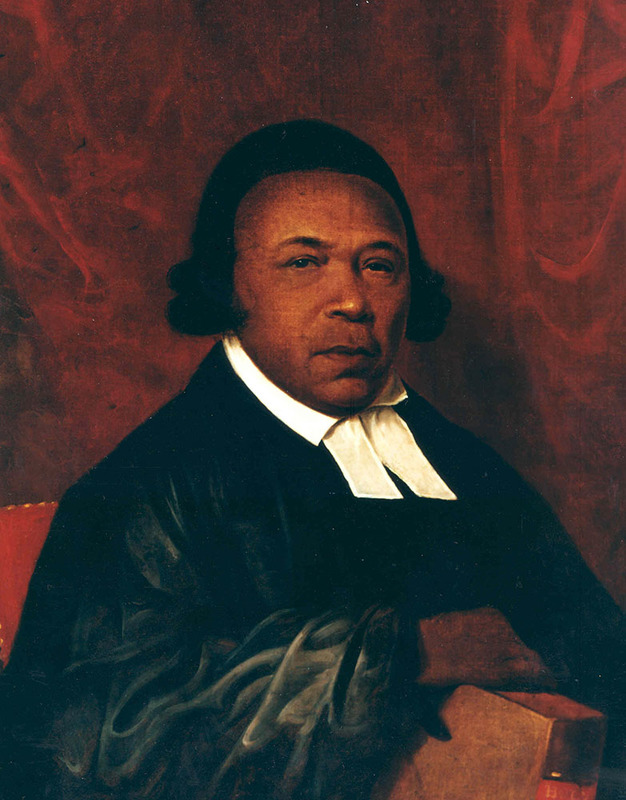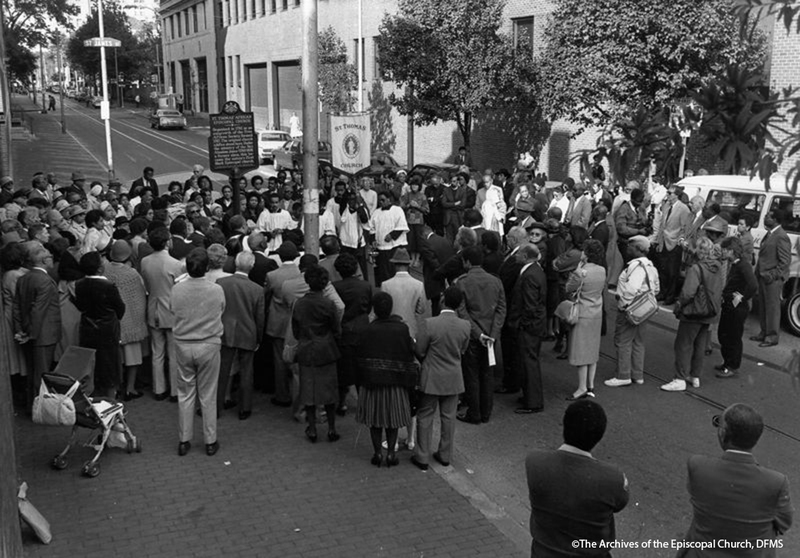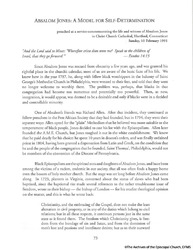The Free African Society
Absalom Jones, 1746-1818
Absalom Jones was America’s first Black priest. Born into slavery in Delaware at a time when slavery was being debated as immoral and undemocratic, he taught himself to read, using the New Testament as one of his resources. At the age of 16, Jones’ mother, sister, and five brothers were sold, but he was brought to Philadelphia by his master, where he attended a night school for African-Americans operated by Quakers. Upon his manumission in 1784, he served as lay minister for the Black membership at St. George’s Methodist Episcopal Church with his friend, Richard Allen, and together they established the Free African Society to aid in the emancipation of slaves and to offer sustenance and spiritual support to widows, orphans, and the poor.
The active evangelism of Jones and Allen greatly increased Black membership at St. George’s. Alarmed by the rise in Black attendance, in 1791 the vestry decided to segregate African Americans into an upstairs gallery without notice. When ushers attempted to remove the Black congregants, the resentful group exited the church.
In 1792 Jones and Allen, with the assistance of local Quakers and Episcopalians, established the “First African Church” in Philadelphia. Shortly after the establishment that same year, the African Church applied to join the Protestant Episcopal Church, laying before the diocese three requirements: the Church must be received as an already organized body; it must have control over its own affairs; and Jones must be licensed as lay-reader and if qualified, ordained as its minister.
Upon acceptance into the Diocese of Pennsylvania, the church was renamed the African Episcopal Church of St. Thomas. The following year Jones became a deacon but was not ordained a priest until 1802, seven years later. At 56 years old, he became the first Black American priest. He continued to be a leader in his community, founding a day school (as African Americans were excluded from attending public school), the Female Benevolent Society, and an African Friendly Society. In 1800 he called upon Congress to abolish the slave trade and to provide for gradual emancipation of existing slaves. Jones died in 1818. [Sources]
Dedication of the Pennsylvania state historical marker on the original site of the African Episcopal Church of St. Thomas, Sept. 30, 1984.





